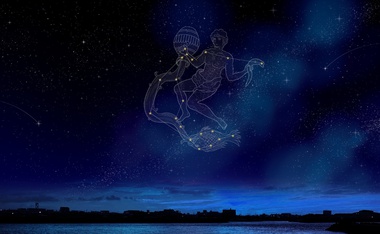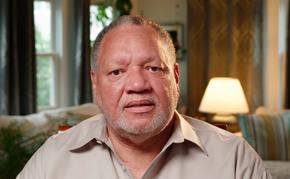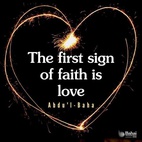The views expressed in our content reflect individual perspectives and do not represent the authoritative views of the Baha'i Faith.
Some claim we live in the “Age of Aquarius,” the 11th sign of the zodiac, symbolized by the Water Bearer, a figure pouring or bearing water — which represents bringing essential nutrients to the Earth.
Astrologers believe that an astrological age represents a lengthy time period of more than 25,000 years in which major changes occur in human society and culture.
The past hippie in me thought the Age of Aquarius started with the song medley “Aquarius/Let the Sunshine In,” written for the 1967 musical Hair by James Rado and Gerome Ragni. The song spent six weeks at number one on the US Billboard Hot 100 pop singles chart in the spring of 1969. My girlfriend Janet, several friends, and I experienced the play at the Biltmore on Broadway in New York.
RELATED: The Greatest Proofs of the Existence of God
Hey, it was the turbulent 1960s, after all.
Traditionally, the astrological sign of Aquarius is associated with freedom, humanitarianism, idealism, rebellion, and nonconformity, which does seem to correspond with some of the emerging values of our modern age. The astrologers Marsha Moore and Mark Douglas promoted the view that, although no one knows when the Aquarian Age began, the American Revolution, the Industrial Revolution, and the discovery of electricity are all attributable to it.
But regardless of whether you give astrology any credit, or if there really is an Age of Aquarius, that flowering, revolutionary modernization of global human civilization — Baha’is believe that a new era for humanity did arrive in 1844. That year marked the advent of The Bab, the founder of the Babi Faith and the herald and predecessor of Baha’u’llah, the prophet who founded the Baha’i Faith.
Regardless of which view you may feel holds true, there is no question that human civilization progresses in fits and starts, with time bringing constant change. We live in an era when humanity has made enormous progress unparalleled in earlier ages. The Baha’i teachings say:
The Revelation of Baha’u’llah, whose supreme mission is none other but the achievement of [the] organic and spiritual unity of the whole body of nations, should, if we be faithful to its implications, be regarded as signalizing through its advent the coming of age of the entire human race. It should be viewed not merely as yet another spiritual revival in the ever-changing fortunes of mankind, not only as a further stage in a chain of progressive Revelations, nor even as the culmination of one of a series of recurrent prophetic cycles, but rather as marking the last and highest stage in the stupendous evolution of man’s collective life on this planet.
Baha’is hold the date and appearance of the Bab as key to this unprecedented age we live in. It began with a Heroic Age when early Babis sacrificed their possessions and lives to establish the Bab’s teachings. With Baha’u’llah’s announcement in 1863 as the Promised One the Bab had foretold, we entered the Formative Age of the Baha’i era. As its name implies, it signals the building up of a new stage in humanity’s development, characterized by the same elements contained in those earlier mentioned songs of peace, love, and harmony. Naturally, a change this momentous in human history inevitably upsets the existing order, as Baha’u’llah wrote:
The world’s equilibrium hath been upset through the vibrating influence of this most great, this new World Order. Mankind’s ordered life hath been revolutionized through the agency of this unique, this wondrous System — the like of which mortal eyes have never witnessed.
This ‘wondrous System’ is in its infancy, as Baha’is build an administrative order based on Baha’u’llah’s voluminous teachings, those of his son and successor Abdu’l-Baha, continuing guidance from Shoghi Effendi, the Guardian of the Baha’i Faith, and the wise direction of the Universal House of Justice, the democratically-elected leadership body of the world’s Baha’is. The spread of the Baha’i Faith has become a progress marker, going from a small number of believers at first to one of the most diverse and widespread religions in the world, with over 2,100 different ethnic groups represented in its community.
RELATED: What Does the “New World Order” Mean?
As the Baha’i Faith has grown and become firmly established, time-honored institutions have teetered and crumbled. The old world order of war, power, greed, pain, and dominance has begun to slowly give way to sharing, cooperation, love, and mutual helpfulness — with the entrenched old world order kicking up a brutal fight to hold on. Shoghi Effendi wrote:
How fierce the hatreds, how false the ambitions, how petty the pursuits, how deep-rooted the suspicions of its peoples! How disquieting the lawlessness, the corruption, the unbelief that are eating into the vitals of a tottering civilization!
Mighty forces are at work. The new age, this Baha’i era, like Aquarius, will eventually bring peace, love, and unity to all humankind. We are witnessing and taking part in a divine springtime, a new season. In a talk he gave in New York City in 1912, Abdu’l-Baha said:
The doors of the Kingdom are opened. The lights of the Sun of Truth are shining. The clouds of divine mercy are raining down their priceless jewels. The zephyrs of a new and divine springtime are wafting their fragrant breaths from the invisible world. Know ye then the value of these days. Awake ye to the realization of this heavenly opportunity.
You May Also Like
Comments

















(From a letter written on behalf of the Guardian, dated July 30, 1956)
(From a letter written on behalf of the Guardian to an individual believer, July 17, 1937)